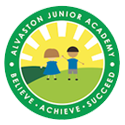Reading
Mrs Bower is our reading curriculum leader. If you would like to know more about our reading curriculum, please arrange an appointment via the school office.
“The more you read, the more things you know. The more that you learn, the more places you’ll go.” Dr Suess.
Reading is important because words are the building blocks of life; reading develops the mind. Understanding the written word is one way the mind grows in its ability. Teaching children to read helps children develop their language skills. It also helps them learn to listen. The increased creativity, communication skills, and vocabulary gained from reading will much improve your writing. Through reading in particular, pupils have a chance to develop culturally, emotionally, intellectually, socially and spiritually. Literature, especially, plays a key role in such development. Reading also enables pupils both to acquire knowledge and to build on what they already know.
It gives the Alvaston child the knowledge, skills and understanding of how to speak, listen and read so that they can communicate their ideas and emotions to others effectively. Reading is the foundation to all academic subjects such as history, mathematics and science, and also influences the child’s ability to write. What you become in the future will depend on the words you believe about yourself now. People, families, relationships, and even nations are built from words.
Without they would not be able to participate fully as a member of society as all the skills of language are essential in doing so. Reading skills are important to their success in school as they will allow them to access the breadth of the curriculum and improve their communication and language skills.
Reading lessons underpin our school values…
Reading helps our children to be confident: it helps to improve (vocabulary and spelling) communication both written and spoken. Reading helps build self-confidence, lessening cultural isolation, building a sense of community and fostering increased communication skills. At Alvaston Juniors our lessons give opportunities for children to develop their speaking and listening skills: making presentations; demonstrating to others; participating in debate; and doing video book recommendations. The teachers speak confidently and model Standard English in their teaching and marking. Our reading approach celebrates achievements, boosting our children’s confidence in reading through the Trust ‘Read, Achieve, Succeed’ initiative.
Reading helps our children to show kindness: it improves empathy. Reading can help you connect with people that you would usually struggle to understand. Within our reading lessons at Alvaston Junior Academy we promote kindness in all aspects of our learning; we encourage children to work kindly with each other, seeing the benefits of sharing or helping one another. Through a collaborative approach to a range of different comprehension activities during the week, children learn how to work with others and develop their teamwork skills.
Reading helps our children demonstrate respect: it helps broaden one’s horizon. It is through reading that children learn about new places, people, and events. Our approach to the teaching of reading and the texts that are used, exposes children to new ideas and beliefs; it helps to make them tolerant and appreciative of other perspectives. It helps to develop increased general knowledge and a better understanding of other cultures. During Shared Reading lessons children are expected to listen to each other read out loud with respect, responding to questions and listening to other’s points of view with tolerance.
Reading helps our children to show motivation: it helps you to discover new things by enabling you to educate yourself in any area of life you are interested in and to do your own research and thinking. It helps develop the mind and imagination and the creative side of a person. At Alvaston Junior Academy we aim to create an environment where reading is valued, promoted and actively encouraged. Therefore, a range of different strategies are used throughout the year to engage the children in reading, such as: ‘hooked on books’- teachers reading books from the top 20 children’s book list. Reading challenges- read 8 books in 8 weeks. Celebration of World Book Day; creation of video book recommendations; Accelerated Reader year group challenges; and reading boosts using MyOn. At Alvaston Junior Academy we understand the different needs of our learners and therefore provide differentiated work in order for every child to access the learning. We want all our children to be the best they can be; to be motivated and strive to achieve challenges.
Our curriculum aims to promote high standards of language and literacy by equipping pupils with a strong command of the spoken and written language, and to develop their love of literature through widespread reading for enjoyment. It is designed around the needs of the pupils in our school and there is a variety of approaches to enable the pupils to make good progress.
The national curriculum for reading aims to ensure that all pupils:
- read easily, fluently and with good understanding
- develop the habit of reading widely and often, for both pleasure and information
- acquire a wide vocabulary, an understanding of grammar and knowledge of linguistic conventions for reading, writing and spoken language
- appreciate our rich and varied literary heritage
- use discussion in order to learn; they should be able to elaborate and explain clearly their understanding and ideas
- are competent in the arts of speaking and listening, making formal presentations, demonstrating to others and participating in debate
Reading: our aim
At AJA we aim to inspire children to become lifelong readers and to enjoy reading for pleasure. We also believe that every child should be given the tools to develop into an enthusiastic and confident reader both at home and at school. Reading improves language and vocabulary, inspires imagination and gives everyone the opportunity to develop and foster new interests.
The teaching of reading
Your child's reading experience is much more than the reading book, which comes home from school. Reading is happening all the time in a classroom and in the school. It is taught in specific reading and English lessons, but children are practising and using their 'reading' constantly across all subjects too.
Reading teaching is delivered throughout the school to develop comprehension skills through VIPERS. These are the key reading skills for children to be able read and comprehend a wide range of literary texts. Vocabulary, infer, predict, explain, retrieve and summarise.
From 2017, the school launched Accelerated Reader – a programme of reading and assessment – to ensure children are reading with sufficient challenge. The children carry out termly comprehension assessments that give them a reading level, which then allows the pupils to choose books at the optimal point to best support their reading development. Book quizzes and assessment track the children’s progress in understanding of texts, number of words read and other key reading skills.
The recent introduction of MyOn has given the children the opportunity to choose what they want to read, in a digital environment in which they are comfortable, motivating them to become better and more confident readers. Children can also complete a quiz on the electronic books that they have read and use other interactive tools to enhance their reading experience (including having the books read to them).
Developing a love for reading
We have been working to develop a love of reading at our Academy. Over the last few years, we have introduced time for all pupils to read in class through dedicated daily class stories. We have also invested in new books, new library furniture and tried to create spaces in school which lend themselves to reading. Each classroom has a dedicated reading area, which includes a variety of class books (Fiction and non-Fiction) which the children can choose and read for pleasure.
Reading at home
We acknowledge and value the important role played by the family in supporting children’s reading development by reading to them and listening to them read. Reading to and with your child, every evening for at least ten minutes can make a dramatic difference to a child's achievement within school.
Books are taken home on a daily basis along with a reading record so that children can be heard reading and a comment (even a brief one) can be made. Children should read and a comment should be written in their reading records at least 4 times a week.
Reading is the key to learning. If we want our children to thrive, teaching them to read is not enough – they must learn to enjoy it.
Useful Websites
https://www.bbc.co.uk/teach/primary/zd7p47h
https://www.bbc.co.uk/bitesize/primary
https://home.oxfordowl.co.uk/reading/
http://www.crickweb.co.uk/ks2literacy.html
https://shop.scholastic.co.uk/homelearning

